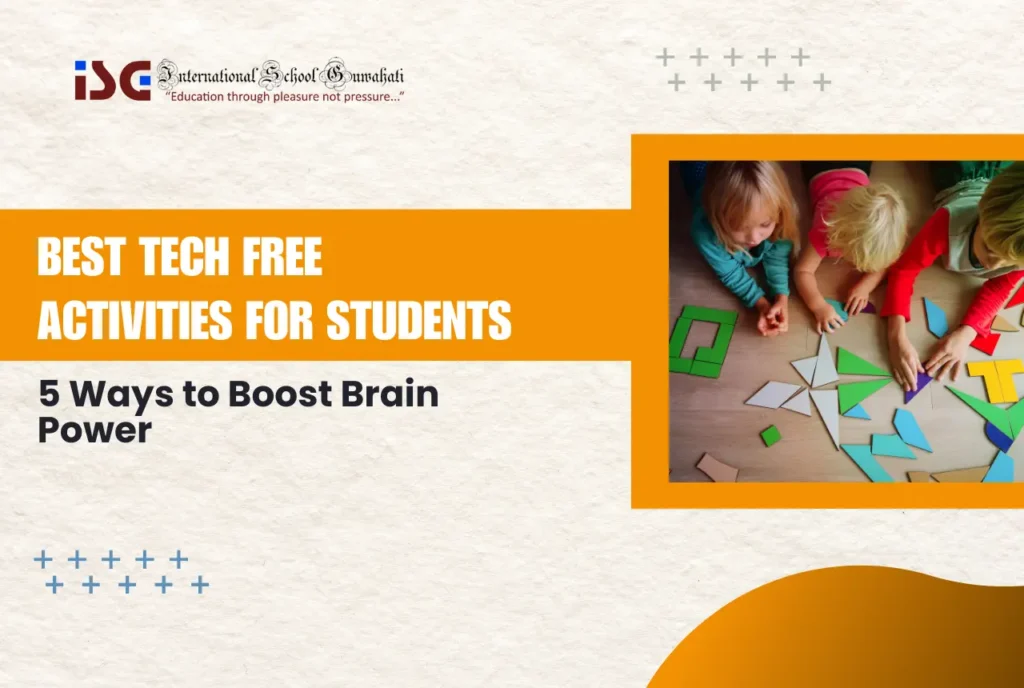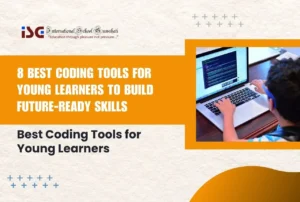![]()
Technology has become part and parcel of our lives. Whether we shop for groceries, chill with a movie, or read a book online, technology has remained constant in all of them.
The same is true for students. They need gadgets and a working internet connection for just about everything in their academics.
But if this gadget time increases, it can pose a big issue in their growth and well-being.
Therefore, here we will discuss some of the best tech free activities for students to boost their brain power and live healthily.
Studies have shown that spending too much time with devices can contribute to depression, social anxiety, and many other health issues such as migraine, reduced eyesight, and others.
Being unplugged for one part of the day can help students process things with more clarity.
Spending time doing something off-gadget is refreshing and recharging which also helps increase our brain’s capability to process and store information.
These are Some of the Best Tech Free Activities for Students
1. Regular Exercise and Physical Activity

Being glued to devices can affect the health and well-being of students. A recent study has found that over 14.4 million children in India are obese.
The major reason for this obesity is their spending too much time with their phones, computer games, and other devices.
Therefore, students must get some exercise or at least some physical activity that helps them get off their phones.
Lack of physical activity in growing children also leads to energy imbalance, risk of developing type 2 diabetes, low bone density, and unbalanced weight gain.
Students can go for several physical activities that they enjoy such as team sports or individual games.
They can also join sports clubs to engage in activities such as badminton, football, and many other activities.
2. Engaging in Creative Pursuits

An unplugged life is a creative one. When people get off their phones, they can engage in many activities and let their creativity flow.
Research has shown that participating in creative activities activates the brain, promoting neuroplasticity and cognitive performance.
This can lead to better memory, problem-solving abilities, and increased creativity.
There are many creative outlets for students such as drawing, creative writing, playing musical instruments, or conducting science experiments at home.
Trying out new things or learning a new skill boosts our brain function as we exercise it in the process.
A creative expression can also have social and emotional benefits as it serves as an outlet.
3. Playing Games and Puzzles

While technology has instructional value, kids can considerably improve their cognitive growth through games and puzzles.
These exercises require students to think critically, strategize, and solve issues, all of which are vital skills for success in any academic area.
Furthermore, games and puzzles enhance memory and concentration.
Recalling patterns and focusing on the task at hand during games builds memory pathways and teaches students to filter out distractions, resulting in improved information retention and focus in class.
Aside from the cognitive benefits, games, and puzzles encourage social engagement and hands-on learning.
Students gain vital social skills and use diverse portions of the brain while playing board games or manipulating puzzle pieces, increasing their learning experience.
4. Learning a New Language

Learning a new language is more than just extending your vocabulary or ordering meals from afar.
It provides a surprising number of cognitive benefits that can boost your general brainpower.
According to research, language learning increases memory by developing neural pathways as you navigate grammar rules, vocabulary, and pronunciation.
Furthermore, the frequent mental juggling required for switching between languages improves your capacity to focus and multitask successfully.
This cognitive boost is due to the brain’s extraordinary neuroplasticity, or ability to change and build new connections throughout life.
Language learning enhances these connections, resulting in a more stable and adaptable brain network.
Starting this language journey does not necessitate a one-size-fits-all strategy.
Whether you use language learning apps, take a class, or start on a self-study journey, constant practice is the key to success.
5. Spending Time in Nature

Nature is the best healer. Being close to nature can help us reduce anxiety and stress, treat depression, and be more mindful.
Studies have repeatedly shown that walks in natural settings can improve focus and cure a bad mood.
A disconnection from nature also results in a condition called ‘Nature Deficit Disorder’.
Spending time outdoors allows for free play, discovery, and sensory stimulation. These experiences are thought to:
- Improve cognitive development: Nature exposure promotes creativity, problem-solving abilities, and concentration. According to studies, spending time in green settings can help people increase their attention spans and minimize ADHD symptoms.
- Reduce stress and anxiety: Being in nature has a relaxing impact. Immersing oneself in natural sights and sounds can reduce stress hormones and increase sensations of well-being.
- Improve mood and self-esteem: Spending time outside has been related to higher levels of happiness and a sense of connectedness with the world. The completion of outdoor activities can also boost children’s confidence.
Benefits of Tech-Free Activities
Spending time away from gadgets and the internet has a world of benefits.
- Reduces Anxiety, stress, and anger.
- Cures mild depression.
- Helps with cognitive development.
- Boosts memory and enhances critical thinking skills.
- Improves emotional well-being.
Tips for Implementing Tech-Free Activities
Students can make use of the following tips to develop a tech-free attitude.
- Make a routine for tech time where you can use the gadgets and the internet to get all the information you need for your studies for the day.
- Set tech-free zones in your house where you will not even bring your phone to. This can be the dining room or the living room.
- Join clubs and communities that can help you stay on your track. There are many communities available on the internet such as on Reddit.
- Ask for help from your parents. Tell them about your goal and ask them to regulate your tech time when you are at home.
Takeaway
In today’s tech-driven world, it’s easy for students to be glued to screens. In some cases, it is even necessary for students to be close to technology as most of their academics depend on it. But, students need to be aware of their tech activities and need to control them consciously. Parents can also








